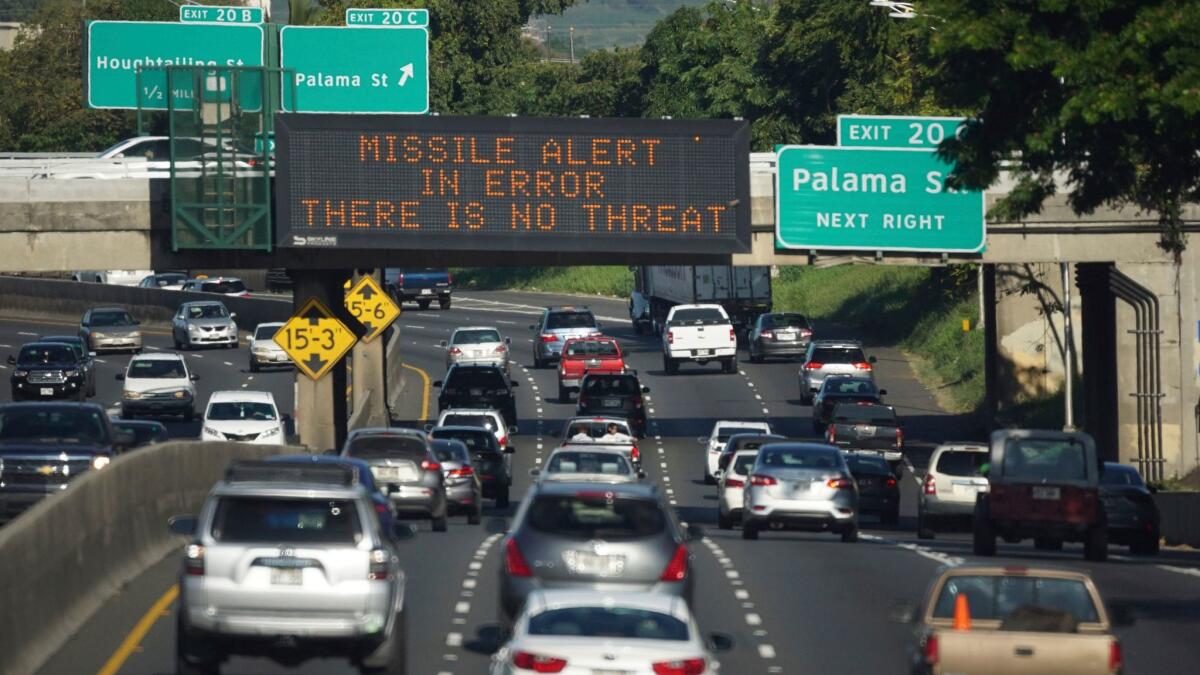Opinion: The false alarm in Hawaii shows nuclear weapons don’t have to explode to terrorize us

- Share via
To the editor: Happily, the missile alert in Hawaii proved to be a false alarm, but what if the purported target had been Washington? With the added warning of “THIS IS NOT A DRILL,” would our president have waited 38 minutes to confirm whether it was the real thing? (“For nearly 40 minutes, Hawaii thought the end was near. Why did it take so long to learn missile alert was a mistake?” Jan. 13)
We can only guess what would have happened, but this incident, like others in the past, highlights the risk of launching a global war — a war that could easily become a nuclear exchange — by accident. Wouldn’t it be ironic if our technological civilization came crashing down because a nameless someone pressed the wrong button?
It is true that in the event of a legitimate warning, the government will have to act quickly and decisively, but it is imperative that procedures be developed to minimize the risk of taking disastrous action in response to a false alarm.
Shane Andre, Seal Beach
..
To the editor: When I was in the fifth grade at Emerson Manor Elementary School in Westchester in the 1950s, we practiced drop drills. These were intended to protect us from flying glass in the event that an atomic bomb was dropped on Los Angeles.
In hindsight, I suspect flying glass would have been the least of our problems. Hiding in storm drains or sewers, ducking into bomb shelters, using doors or newspapers to cover oneself, or engaging in drop drills in the event of a nuclear attack would all be useless. Shelters of any sort most likely would be turned into crematoriums, as was the case in Dresden, Germany.
The only sure defense against a nuclear attack is disarmament.
Joseph Gius, Los Angeles
..
To the editor: After the mess in Hawaii, I believe that everyone needs to learn about how they would be notified in case of a disaster.
If cellphones are the means of notification, what if yours is turned off? What if you don’t have a cellphone? If the warning comes over TV, what if you happen not to be watching at that moment? Are there still such things as air raid sirens?
I believe that we all need some serious clarification about this.
Susan Stann, Temecula
Follow the Opinion section on Twitter @latimesopinion and Facebook
More to Read
A cure for the common opinion
Get thought-provoking perspectives with our weekly newsletter.
You may occasionally receive promotional content from the Los Angeles Times.









